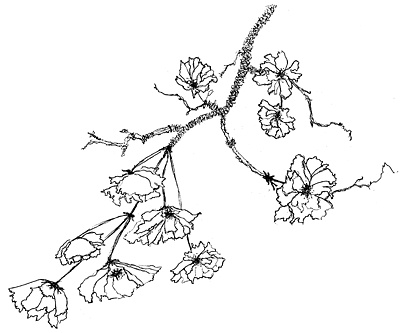All Nonfiction
- Bullying
- Books
- Academic
- Author Interviews
- Celebrity interviews
- College Articles
- College Essays
- Educator of the Year
- Heroes
- Interviews
- Memoir
- Personal Experience
- Sports
- Travel & Culture
All Opinions
- Bullying
- Current Events / Politics
- Discrimination
- Drugs / Alcohol / Smoking
- Entertainment / Celebrities
- Environment
- Love / Relationships
- Movies / Music / TV
- Pop Culture / Trends
- School / College
- Social Issues / Civics
- Spirituality / Religion
- Sports / Hobbies
All Hot Topics
- Bullying
- Community Service
- Environment
- Health
- Letters to the Editor
- Pride & Prejudice
- What Matters
- Back
Summer Guide
- Program Links
- Program Reviews
- Back
College Guide
- College Links
- College Reviews
- College Essays
- College Articles
- Back
Grandfather: Norman Savage MAG
My grandfather is my hero. He's heroic not for somethinghe did for me or even my parents, but for his country.
Sergeant NormanAlexander Savage, my grandfather, was a Marine and served in the Pacific Theaterduring World War II. There, the Marine Corps used a method called island hopping,where Marines would storm islands one by one to get closer to Japan. It was likelanding at Normandy over and over again.
The defenders on the islandswere different from those in Normandy, though. While the Germans would surrenderwhen the situation was hopeless, the Imperial Japanese Army would carry on withknives, spears and even explosives strapped to their chests, ready to jump on anddie with a Marine. For many Japanese soldiers, suicide was preferable tosurrender. When taken prisoner they were stripped to their underwear to make surethey didn't have a grenade or knife to kill one more Marine before they died.
The Japanese Emperor encouraged his troops to fight to such extremes. Hewas considered a god, and when he commanded men to fight to the death, they did.They were so dedicated that they would leave behind wounded comrades so that whena medic came to treat them, he would be killed by snipers. This is the foe mygrandfather fought.
Iwo Jima was the largest invasion staged by the MarineCorps. It involved the Third, Fourth and Fifth Divisions. The Fifth and Fourthwere the assault divisions, while the Third was in reserve. My grandfather was inthe Fifth Division. Iwo Jima was assaulted for months by war ships, B-17s, B-24s,B-29s and F6F Hellcats before the invasion.
Iwo Jima, a volcanic island,is basically a large rock. The island's defense consisted of dozens of artillerypieces and hundreds of pillboxes.
There was also a vast underground cavesystem, where the Japanese kept food and guns safe from bombardment. Japanesesoldiers would pop up out of the ground and attack, then disappear. The Marineshad to clear the caves one by one. Years after the war ended, people would findJapanese soldiers still living in the caves.
Iwo Jima was different instill another sense. Normally, as soon as the Marines took a beach, the Japanesesoldiers would mount banzai charges in which they would try to engage inhand-to-hand combat on the beaches. They would be decimated, and the Marineswould take the island.
Lieutenant General Tadamichi Kuribayash, commanderof the Imperial troops on Iwo Jima, had another plan. There would be no banzaicharge; rather, his soldiers would fight from positions deeper on the island andinflict as many casualties as possible. The American High Command thought itwould take one week to conquer Iwo Jima. It took five.
When mygrandfather landed on the beach he was part of the fifth wave. The beach seemedempty of defenders, but mortars and artillery were coming down like rain. As theyadvanced, a day's gain would be measured in "football fields," or100-yard segments. In the relatively cramped positions of the island, the onlymaneuver was a forward assault.
As the losses on both sides grew, agroup of Japanese defenders decided to mount a banzai charge. They chose mygrandfather's platoon. Some 300 Japanese came in the night to attack 32 Marines.Shouting "Banzai," they charged with sticks, knives and other weapons.
First Lieutenant Martin, the platoon's commander, rallied the Marinesand inspired them to resist the charge. When he was killed, my grandfather tookover. He stopped the charge and saved the platoon.
The Lieutenant wasawarded the Congressional Medal of Honor. In World War II only 60 Marines wereawarded this honor; 22 received it for Iwo Jima, as did five Naval sailors.Admiral Chester Nimitz said of the Marines at Iwo Jima that "uncommon valorwas a common virtue." Some 6,000 Americans died taking Iwo Jima, and thewounded numbered 19,217. There were 2,648 Marines who broke down mentally. Of the21,000 Japanese defenders, 20,000 died.
In war, though, everyone is acasualty, whether physically or mentally. My grandfather still has nightmaresabout the worst thing that ever happened to him - the war. Yet, when he camehome, he started a family and went on living life. To me, that is trulyheroic.

Similar Articles
JOIN THE DISCUSSION
This article has 1 comment.

0 articles 0 photos 12292 comments